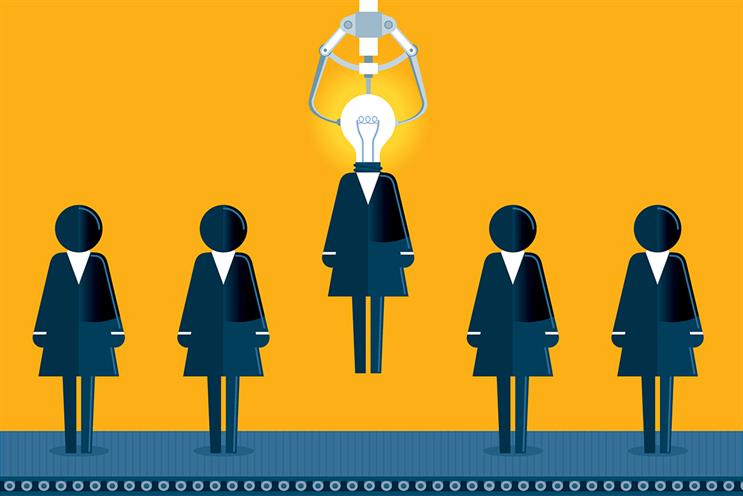While I think we can safely say there has been progress in moving gender issues forward in the past couple of years, I for one still think that the same old problems will continue to rear their ugly heads in 2019. How depressing.
This got me thinking about trying to find a way to make these problems – what we can expect, their effect, what we want to be done about them and how they might be solved – easier to understand and therefore tackle.
So here are what I think will be four of the biggest issues affecting women in 2019.
The gender pay gap
What will happen
Not a lot. Despite companies having to announce their gender pay gaps for the second time by 4 April, meaning there is a now a recorded benchmark, I would suspect that not many businesses will have seen an improvement. This is despite a lot of strong talk at the time of the data release last year. Attention spans and memories are short in this business.
What should happen
More positive changes to companies' pay gaps. Women (and men who get behind the issue) should use this increased emphasis on the subject of pay, and the fact that senior management will have turned their gaze to this problem (at least for a couple of months), to drive positive changes.
What we have to make happen
One of the biggest conversations last year was about empowering women to have the courage to ask for pay rises, but it needs to go way beyond this. As well as making sure women feel empowered to ask the question, we also need to support women in making sure they can deliver a merit-based case for their own professional development. They need to demonstrate their intrinsic value to the business so that hiring, promoting and properly paying them is a no-brainer.
Micro-aggressions
What will happen
Sadly, these will continue. A lot. We face them day in, day out. In general – I’m not including everyone, of course – efforts to educate people about workplace micro-aggressions either go unheard or, worse, get flatly ignored. People will continue to see them as something that exist.
What should happen
Understanding. Education. Acceptance. This is a relationships industry. We shouldn’t be afraid to interact with each other. If someone’s dog has died, it shouldn’t feel off-limits to hug them. But there is so much misunderstanding of what is acceptable and what isn’t.
What we have to make happen
We need to promote genuine interaction between employees; make friendships, feelings and relationships OK in the workplace again and promote genuine interaction as well as genuine competition. In any good job, there is going to a blurring of lines between people’s professional and personal lives, and this is OK. One way of getting there is through better education. More unconscious bias training, including a much deeper understanding of micro-aggressions: what they are, how many times you perpetrate them without knowing, how to recognise when you’re doing it and how you stop it.
Gender stereotyping in ads
This follows the announcement of the Advertising Standards Authority's new regulations to ban "gender stereotypes that are likely to cause harm, or serious or widespread offence".
What will happen
Not much. Gender stereotypes are ingrained on the consciousness of the nation and reliance on gender stereotypes are similarly ingrained in the consciousness of the people making them. They’ve always been used, they’re easy to use and they sell products.
What should happen
It’s a carrot-and-stick situation. They have chosen stick, but in actual fact it’s a wet noodle. To change this, you need more than a potential fine. Agencies and marketers need to be incentivised to make different work, not slapped on the wrist if they make the same old lazy work. More carrot, less stick.
What we have to make happen
This subject needs to be treated like a societal issue. We need to create a government campaign that targets the populace, like the anti-drink-driving or road-safety ads that changed the way people think. It’s a systemic issue, so you need a systemic solution.
If you are doing work for clients, then you still need to worry about shifting biscuits or toiletries, so it’s easy to slip into the old "tried and tested" approach. Public-service ads are judged in a different way.
Post-#MeToo
What will happen
People will get tired of it. It’ll start being forgotten. Women will just be expected to carry on as if nothing has happened. Those who do not will be branded as problems and/or difficult to deal with.
What should happen
Lessons should be learned, then we need to move forward. Greater education is needed, of course, but more importantly there needs to be a focus back on good work, not gender. Workplaces need to be home to meritocracies, not witchhunts. We also need to stop seeing ghosts and making crazy links between #MeToo and things such as the growing prominence of flat shoes and dresses with pockets on catwalks. These tenuous links stop people from dealing with the real issues. Don’t forget #MeToo, but don’t dwell on it.
What we have to make happen
#MeToo was an important cultural moment, but we need to make sure it doesn’t result in women being valued just for their gender quotas. We should be hired and promoted because we’re the best choice in the room – not the politically correct one. We need to turn the focus back on the work and the product, creating a strong industry and a strong country – at a time when that has never been more important.
Lenah Ueltzen-Gabell is executive vice-president, EMEA, at Wasserman


